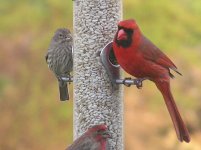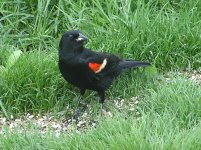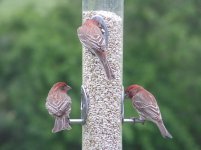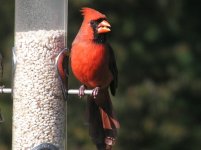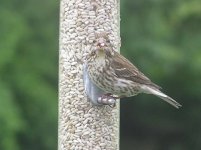cavan wood
Well-known member
I usually shut down my feeders for the summer and I was wondering how many others did the same, or conversely, how many continue to feed all year.
My reasons for shutting down are:
1. grackles - round about the end of april I feel like I'm in an Alfred Hitcock movie.
2. absenteeism - we frequently go away for days at a time during summer and I feel that the inconsistency could be hard on the birds.
3. mess - well not really, in the fall I just rake now and then and mow over it.
4. expense - I spend over $20 a month on food through the winter and I need a break
5. disrupting migration - I always worry if I feed from summer into fall that some birds will stick around that shouldn't. I had a song sparrow all this winter and I kept thinking the little buggar would freeze, but he was still ticking by the middle of March, so perhaps that's silly.
Look forward to your feedback
Scott
My reasons for shutting down are:
1. grackles - round about the end of april I feel like I'm in an Alfred Hitcock movie.
2. absenteeism - we frequently go away for days at a time during summer and I feel that the inconsistency could be hard on the birds.
3. mess - well not really, in the fall I just rake now and then and mow over it.
4. expense - I spend over $20 a month on food through the winter and I need a break
5. disrupting migration - I always worry if I feed from summer into fall that some birds will stick around that shouldn't. I had a song sparrow all this winter and I kept thinking the little buggar would freeze, but he was still ticking by the middle of March, so perhaps that's silly.
Look forward to your feedback
Scott




